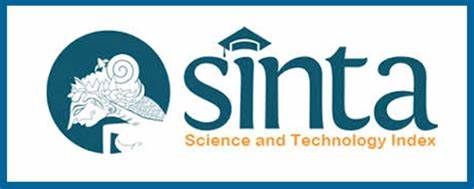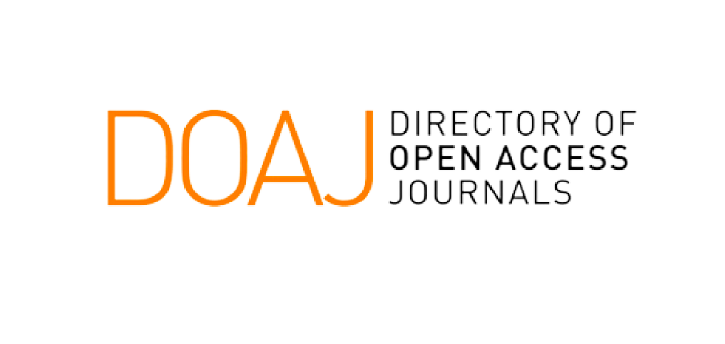PENETRASI TANPA LABEL: PENDEKATAN BARU INTERNALISASI IDEOLOGI PANCASILA PADA GENERASI MILENIAL
Abstract
Keywords
References
Angel Dwi Septianingrum, & Dini Anggraeni Dewi. (2021). Implementasi Nilai Pancasila Pada Generasi Milenial Di Era Serba Modern. Jurnal Evaluasi Dan Pembelajaran, 3(1), 28–35. https://doi.org/10.52647/jep.v3i1.31
Evita, A. L. (2019). No Title. 467–484.
Fairclough, I., & Norman, F. (2013). Political Discourse Analysis: A Methods for Advanced Students. London: Routledge. In Journal of Language and Politics (Vol. 12, Issue 2, pp. 295–304). https://doi.org/10.1075/jlp.12.2.07kie
Fairclough, N., & Fairclough, I. (2013). Political discourse analysis: A method for advanced students. In Discourse & Society (Vol. 24, Issue 2). http://ovidsp.ovid.com/ovidweb.cgi?T=JS&PAGE=reference&D=psyc10&NEWS=N&AN=2013-07834-007
Fadilah. (2019). Tantangan Dan Penguatan Ideologi Pancasila. 2(2), 66–78.
Fauziyah, N., Islam, U., Maulana, N., & Ibrahim, M. (2022). Eksplorasi Nilai-Nilai Sosial Budaya Pada Remaja Nailul Fauziyah. 6(2).
Gerung, R. (2018). Pancasila: Ide Penuntun, Bukan Pengatur. Prisma, 37(2), 41–47.
Iskandar, K. (2020). Kisah kalista, bahasa, dan pancasila. 5(April), 77–82.
Jordaan, O., & Coetzee, M. (2017). Storying worlds : using playback theatre to explore the interplay between personal and dominant discourses amongst adolescents. 9783(August). https://doi.org/10.1080/13569783.2017.1359085
Kadir, N. (2022). Media Sosial dan Politik Partisipatif : Suatu Kajian Ruang Publik , Demokrasi Bagi Kaum Milenial dan Gen Z. 4(2), 198–211.
Kristiono, N. (2017). Penguatan Ideologi Pancasila Di Kalangan Mahasiswa Universitas Negeri Semarang. Harmony, 2(2), 193–204. https://journal.unnes.ac.id/sju/index.php/harmony/article/view/20171/9563
Ma’arif, A. S. (2012). Masa Depan Pluralisme Kita. Demokracy Project.
Mea, J. I. (2020). Gaya Kepemimpinan Dalam Perspektif Generasi Millenial Dede Mustomi 1* ; Eni Reptiningsih 2 1, 2 Universitas Bina Sarana Informatika, Indonesia. 4(1), 189–199.
Oktari, D., & Dewi, D. A. (2021). Pemicu Lunturnya Nilai Pancasila Pada Generasi Milenial. JURNAL PEKAN : Jurnal Pendidikan Kewarganegaraan, 6(1), 93–103. https://doi.org/10.31932/jpk.v6i1.1170
Paranita, S., Islam, U., Raden, N., & Palembang, F. (2022). Internalisasi Nilai-Nilai Pancasila Bagi Genarasi Z dalam Mewujudkan Good Citizenship di Perguruan Tinggi Islam. 4, 35–46.
Regiani, E., & Dewi, D. A. (2021). Pudarnya Nilai-Nilai Pancasila Dalam Kehidupan Masyarakat Di Era Globalisasi. Jurnal Kewarganegaraan, 5(1), 30–38. https://doi.org/10.31316/jk.v5i1.1402
Sara, P., Masa, D., Ke, O., Transisi, M., & Baker, P. H. (2003). Politisasi sara: dari masa orba ke masa transisi demokrasi 1. 1995, 1–34.
Sianturi, Y. R. U., & Dewi, D. A. (2021). Penerapan Nilai Nilai Pancasila Dalam Kehidupan Sehari Hari Dan Sebagai Pendidikan Karakter. Jurnal Kewarganegaraan, 5(1), 222–231. https://doi.org/10.31316/jk.v5i1.1452
Situru, R. S. (2019). Pancasila dan Tantangan Masa Kini. 2(1), 34–41.
Soekarnoputri, M. (2021). The Establishment of Pancasila As the Grounding Principles of Indonesia. Jurnal Pertahanan: Media Informasi Ttg Kajian & Strategi Pertahanan Yang Mengedepankan Identity, Nasionalism & Integrity, 7(1), 122. https://doi.org/10.33172/jp.v7i1.1206
Kuswandoro, W.E. (2023). From Reluctance to Acceptation: Participation of Poor-People in Policy Implementation Using Discursive Institutionalism. 9(1), 182–201. https://doi.org/10.21776/ub.transformative.2023.009.01.2
Wodak, R., & Meyer, M. (2008). Critical Discourse Analysis: History, Agenda, Theory, and Methodology 1. 1–33.
Zubair, M., Alqadri, B., Artina, F., & Fauzan, A. (2021). Sosialisasi Bahaya Penyebaran Paham Radikalisme Melalui Literasi Media Online Di Pondok Pesantren Unwanul Falah NW Paok Lombok , Lombok Timur Nusa Tenggara Barat. 2.
DOI: https://doi.org/10.21776/ub.waskita.2023.007.02.1
Refbacks
- There are currently no refbacks.
Copyright (c) 2023 Wawan Edi Kuswandoro

This work is licensed under a Creative Commons Attribution 4.0 International License.









